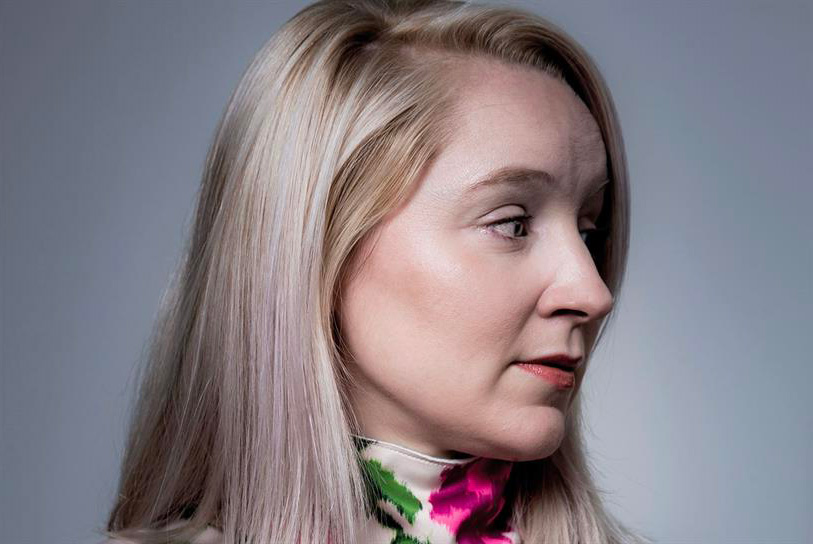Embrace the art of saying no this year

Opinion
Rather than adding a raft of resolutions to your New Year to-do list, recognise that you don’t need to solve everyone’s problems alone.
“You cannot find peace by avoiding life.”
The words of playwright and screenwriter David Hare feel particularly apt at the grey beginnings of a year that many in the media are approaching with trepidation. Economic pressures, an ongoing cost-of-living crisis, a looming election and a rise in hate crime driven by a divisive “go woke or go broke” media narrative all contribute to a sense of seemingly permanent crisis. It’s an environment in which you can forgive yourself for that entirely understandable urge to kick your New Year goal-setting to the curb and hunker down for a few more days with only Quality Street for company.
Yet the glorious procrastination that comes hand in hand with the excess of the festive season must inevitably get back into reality and the promise of a New Year. So succumb to setting your alarm, because it is time to get up and go again.
For agency CEOs, that January wake-up call will be accompanied by a fresh cluster of resignations, many sparked by draconian return-to-work policies — policies that, as one progressive media agency CEO shared with me last year, have solved his recruitment problems in one fell swoop.
It is important to recognise that these policies disproportionately negatively impact women. Flexible working is vital both to retaining female talent and closing the gender pay gap.
Let 2024 be the year leaders take action and accountability. We must collectively acknowledge that when women leave companies as a result of a roll-back on flexible working, that is not an “unintended consequence”. Women in media cannot change the narrative, or experience, of women in media alone. Inclusion is a team sport.
An inclusive narrative for growth
If 2023 taught the industry anything, it’s that agencies desperately need to embrace a more inclusive growth agenda. Now is the time to abandon the fairy tale of eternal economic growth and build more sustainable growth models to better attract and retain the industry’s most important asset: its people.
The need for a new narrative of success is particularly acute for women in business who, at the start of each year, face an onslaught of articles, podcasts and top tips for success with zero understanding of the realities of their lives.
Hustle culture now almost equals diet culture in its toxic, suffocating and unrealistic narrative for women. Spoiler alert: those seven habits of highly successful people — from the 5am starts to the unwavering ability to give your career your full attention all of the time — simply aren’t an option for those with caring responsibilities. This narrative is particularly acute in the creative industries, where leaders continue to glorify missing the moments that matter.
The “move fast and break things” mentality of hustle culture has broken the spirit of many women in media. Yet the truth remains that, as an industry, we are collectively more comfortable with talking about change than addressing the structural and economic barriers that still hold women back in the workplace.
So at a time when the pressure continues to mount and burnout continues to top the agenda, I have a simple question for women in media: what are you going to say no to in 2024?
Invisible labour in the workplace
While the importance of boundaries has become a hot topic for podcasters and writers, the brutal truth for women in media is that saying no is not always easy. Women continue to face a double bind in the workplace. They are judged more harshly for having boundaries, yet structurally and economically women often need them more than their male colleagues in order to thrive. Behaviour that is celebrated in a male leader is still too often declared unforgivable in a woman.
In two decades of journalism, I have never had a female editor who hasn’t been described as “difficult” for demonstrating behaviour that elicits praise among their male counterparts. I have edited female columnists and experts who are consistently asked to justify their point of view; yet their male colleagues are given the space to push their points to their limits.
I’ve watched women bend under the weight of expectation, often from other women, that every given problem is theirs to solve. Women can be child-free by choice, yet the expectation that they take on the invisible emotional labour of an office mother persists.
I’ve watched brilliant women in our industry slowly self-edit themselves out of their own success and single-minded brilliance, suffocated by the overwhelming pressure to be likeable. I’ve seen women disproportionately undervalued and overstretched, pushed to the brink by that crushing weight to say yes to everything.
It’s a pressure to bend to others that, at its core, means women continue to say no to their own wants and needs. How can women follow the arc of their true leadership potential if they are constantly expected to bend until they break?
Kindness is a radical act
All too often, kindness in the workplace is depicted as a weakness instead of the radical act that it is. Kindness and empathy are leadership skills that must be celebrated, regardless of gender. Yet only a cursory glance at the slogans on sweaters in my daughter’s wardrobe (“Be kind”, “Kindness matters”, “Kind society”) compared with my son’s (“Adventure first”, “Be wild”, “Gamer”) reminds me that the gendered weight of this expectation of kindness is the very worst kind of cruelty.
We continue to demand kindness from women in workplaces embracing policies that make it virtually impossible for them to survive, let alone thrive. So rather than urge women to embrace hyper-masculine goal-setting in 2024, my ask is simple: embrace the “no” setting.
The simple truth is that, as organisations and individuals, we cannot solve every single problem. Yet we can and must be accountable for the consequences of our actions. So do less — but do it better. Recognise that if you want to extend kindness to others, you first need to extend it to yourself.
Media leaders will not find peace, or prosperity, by avoiding change in 2024. Yet you cannot say yes to the things that will make a meaningful difference to your life without embracing the freedom and friction of “no”.
Let’s not allow ourselves, or our organisations, to accept the fiction that the consequences of our actions are unintended. Accountability is everything, but let’s make sure we are holding each other to the same standards.
 Nicola Kemp has spent over two decades writing about diversity, equality and inclusion in the media. She is now editorial director of Creativebrief. She writes for The Media Leader each month.
Nicola Kemp has spent over two decades writing about diversity, equality and inclusion in the media. She is now editorial director of Creativebrief. She writes for The Media Leader each month.
Career Leaders: The Media Leader‘s weekly supplement with thought leadership, news and analysis dedicated about media careers, training, development and wellbeing.
Sign up to our daily bulletin for free to ensure you stay up to date and get Career Leaders every Tuesday.





